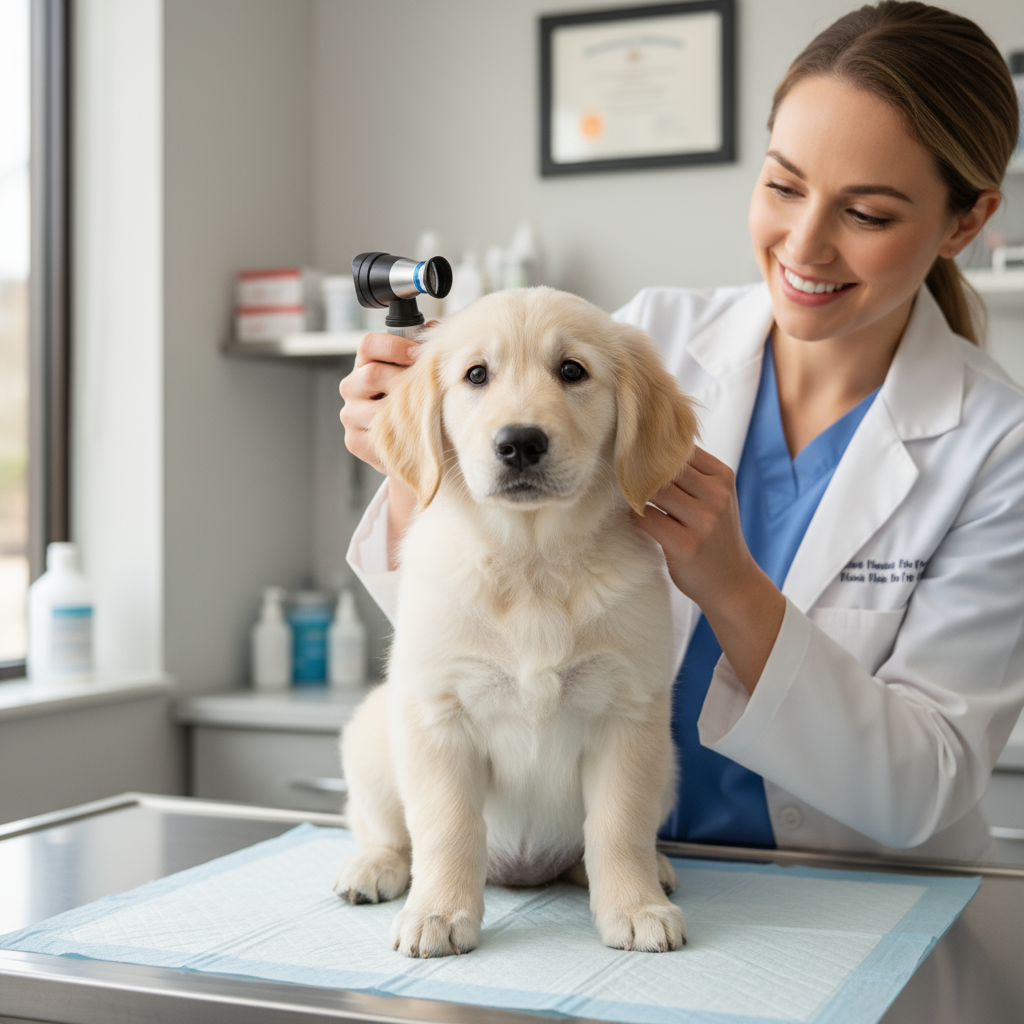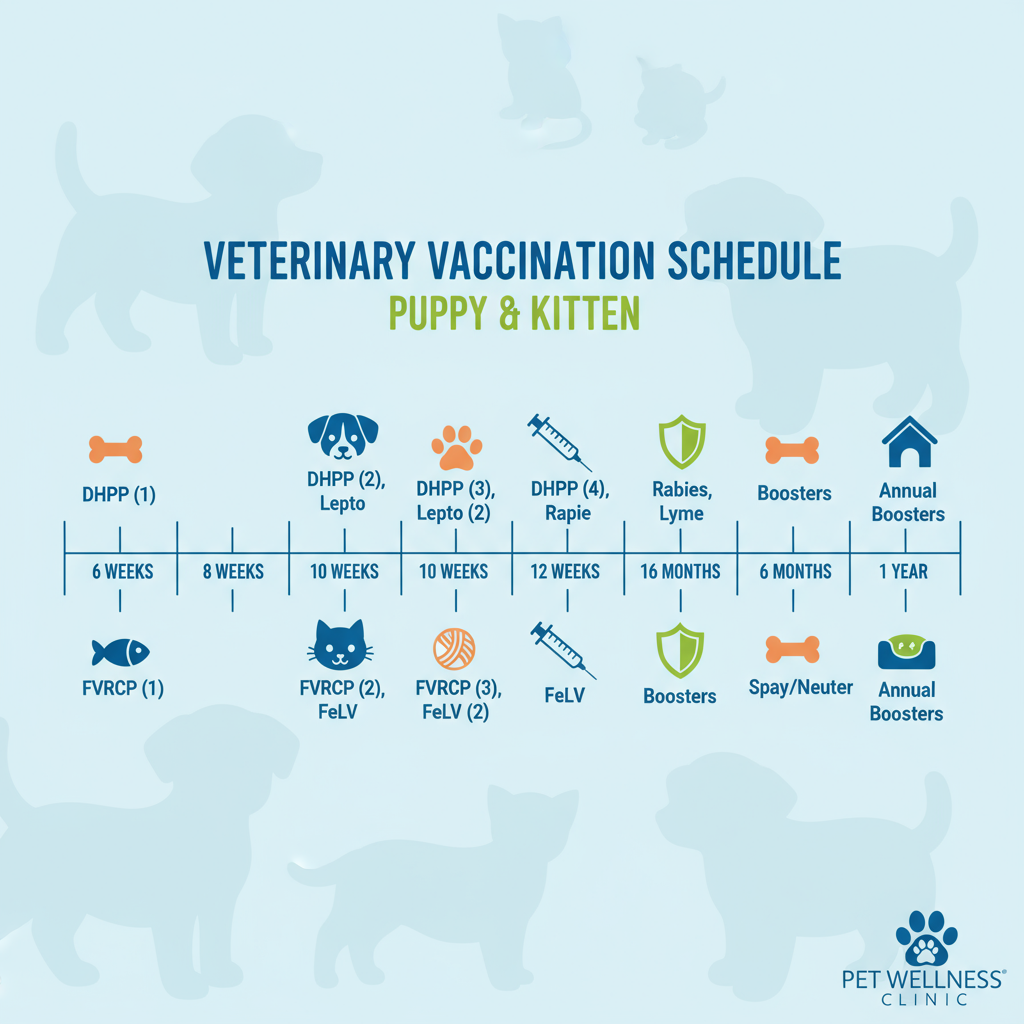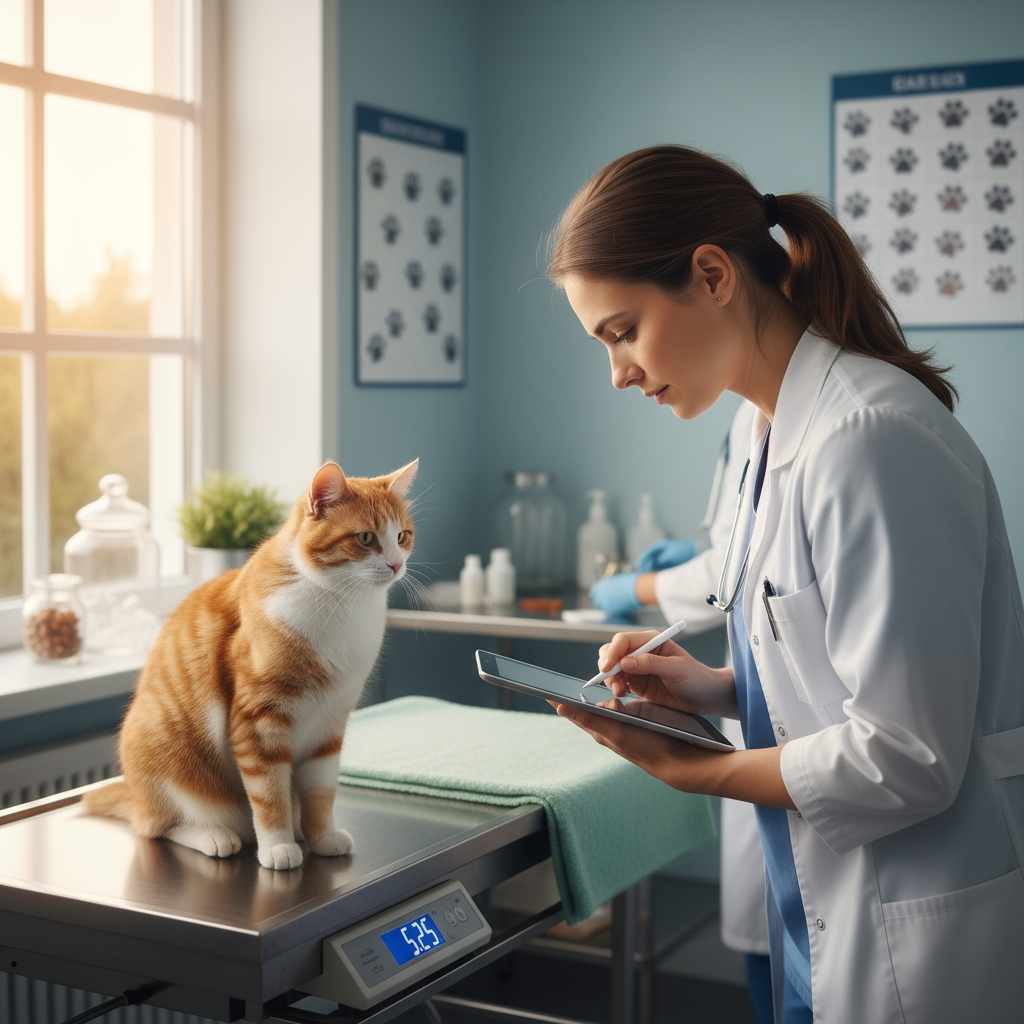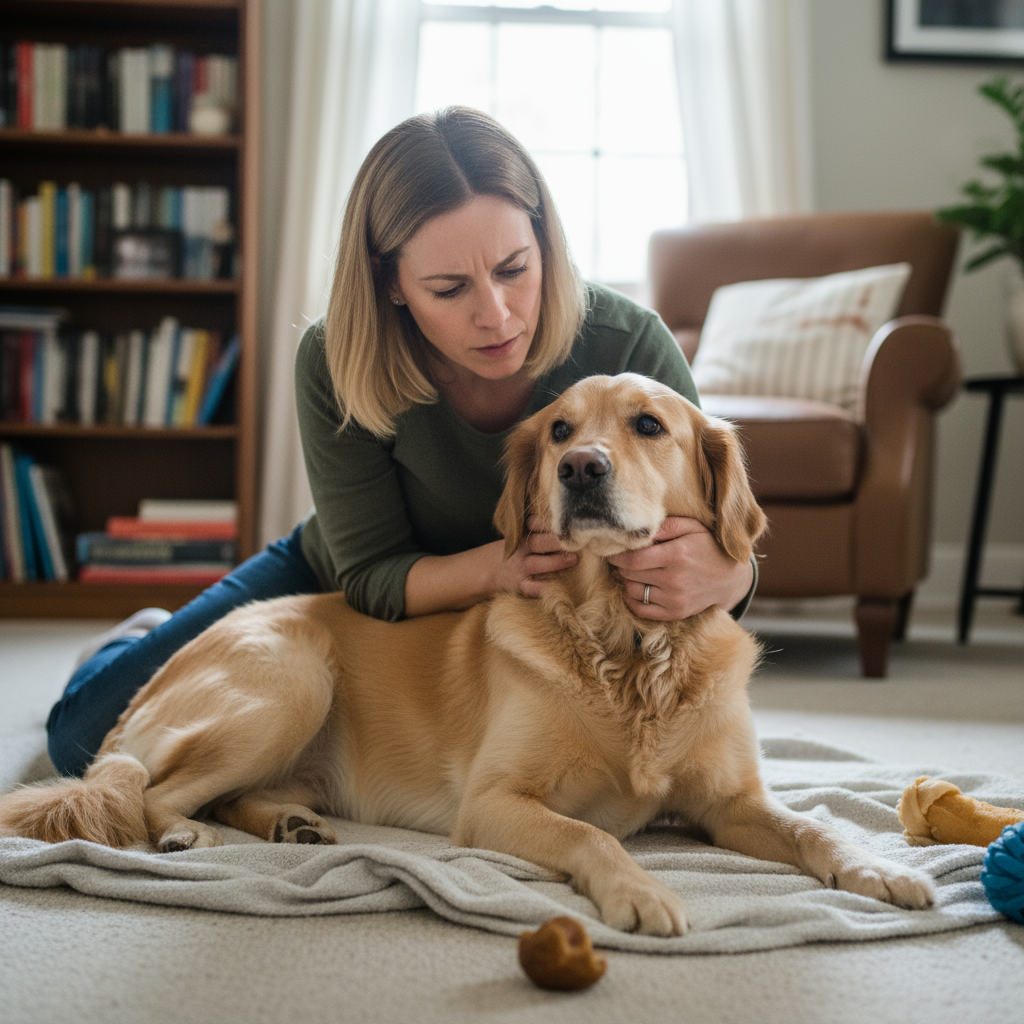My best friend Sarah spent $4,500 on emergency surgery for her German Shepherd last month. The worst part? Her vet said the tumor could've been removed for $800 if they'd caught it six months earlier during a routine vet checkup. That's when I realized most of us have no clue how often our pets actually need these visits.
Here's the thing that nobody tells you about vet checkups: that "annual visit" advice you've heard forever? It's outdated. After interviewing multiple vets and learning from my own mistakes with three dogs and two cats over the past decade, I discovered the real schedule depends on factors most pet parents never consider.
Understanding Vet Checkup Frequency: How Often Your Pet Needs a Wellness Exam
The Age Factor Changes Everything
Let me blow your mind with something my vet told me: a year in your adult dog's life equals about seven human years. For cats, it's roughly four to five years. So when you skip that annual vet checkup, it's like you going seven years without seeing a doctor. Suddenly doesn't seem so excessive, does it?
Puppies and kittens need vet checkups way more frequently than adults. We're talking every 3-4 weeks until they're about four months old. Yeah, I know, that seems like you're living at the vet's office. But these early visits aren't just about vaccines. My puppy's umbilical hernia was caught at eight weeks old during a routine vet checkup. Fixed easily then, but would've been major surgery later.
Adult pets (ages 1-7 for dogs, 1-10 for cats) can usually stick to annual vet checkups if they're healthy. But here's what I learned the hard way: "healthy" doesn't mean "acting normal." My cat seemed perfectly fine but her vet checkup blood work showed early kidney disease. She lived five more quality years because we caught it early.

Senior Pets and Their Routine Vet Checkups
Once your pet hits senior status, the game changes completely. Large dogs become seniors around age six, small dogs around eight, and cats around ten. These guys need vet checkups every six months, minimum.
Why the increase? My thirteen-year-old Beagle taught me this lesson. Between his January and July vet checkups, his kidney values changed dramatically. Six months in senior pet time is like three to four human years. A lot can happen in that timeframe, and catching changes early makes all the difference.
Some vets even recommend quarterly vet checkups for pets over twelve or those with chronic conditions. Sounds excessive until you're dealing with a crisis that could've been managed if caught sooner. Trust me on this one.
What Your Vet Checkup Schedule Should Actually Look Like
Puppy and Kitten Vet Checkup Timeline
Your baby pet needs their first vet checkup within 48 hours of coming home, regardless of age. I learned this after adopting a "healthy" kitten who turned out to have ear mites and roundworms. The shelter meant well, but stuff gets missed.
Here's the typical vet checkup schedule for the first year:
- 6-8 weeks: First comprehensive exam and vaccines
- 10-12 weeks: Second vaccine round and development check
- 14-16 weeks: Final puppy/kitten vaccines and growth assessment
- 6 months: Spay/neuter consultation and pre-surgery bloodwork
- 12 months: Transition to adult care
My vet calls this the "foundation year." These frequent vet checkups establish baseline health data that becomes invaluable later. Plus, positive early experiences make future visits way less stressful.

Adult Pet Vet Checkup Frequency
For healthy adult pets, annual vet checkups work well. But "annual" doesn't mean "whenever you remember." I schedule my pets' checkups around their birthdays. Makes it impossible to forget, plus it feels like a birthday gift of health.
But certain factors might increase vet checkup frequency even for adults:
- Breed-specific health risks (my Cavalier needs heart checks twice yearly)
- Outdoor lifestyle (more parasite exposure means more frequent checks)
- Previous health issues (once a problem, always worth monitoring)
- Weight management needs (obesity is a disease multiplier)
Working dogs, hunting dogs, or extremely active pets might benefit from twice-yearly vet checkups even when young. The wear and tear on their bodies is different from couch potatoes.
Adjusting Schedules for Individual Needs
Here's what veterinarians don't always emphasize: you know your pet best. If something seems off, don't wait for the scheduled vet checkup. My normally foodie Labrador skipped one meal, which seemed minor. But I knew him, so we went in. Turned out he'd swallowed a sock that needed surgical removal.
Chronic conditions change everything about vet checkup frequency. My diabetic cat goes every three months for glucose curves. My dog with heart disease gets checked every four months. These aren't excessive; they're preventive. Managing chronic disease costs way less than crisis intervention.
Some pets need more frequent vet checkups just because they're prone to problems. My friend's Bulldog goes every four months because the breed has so many potential issues. Better safe than sorry, especially with breeds known for health challenges.
The Hidden Benefits of Regular Vet Checkups
Building a Health History Baseline
Regular vet checkups create something invaluable: a health timeline for your pet. When my senior dog developed a heart murmur, the vet could look back and see exactly when it started. This history helped determine how aggressive to be with treatment.
Every vet checkup adds data points. Weight trends, blood work patterns, behavior notes. It's like creating a medical biography for your pet. When something goes wrong (and eventually, something will), this history becomes your roadmap to the best treatment decisions.
I keep a notebook for each pet with vet checkup notes. Sounds obsessive, but when the emergency vet asks about previous health issues at 2 AM, you'll be grateful for those records. Plus, it helps me remember questions for the next visit.
Catching Problems Before They Become Expensive
Let's talk money, because vet care isn't cheap. My neighbor skipped vet checkups for three years to "save money." Her cat's untreated dental disease led to kidney problems, costing $3,000 in treatment. Annual vet checkups with dental cleanings would've been $600 total.
Here's my real-world cost comparison from last year:
- Annual vet checkup with blood work: $250
- Dental cleaning (caught early gingivitis): $400
- Total prevention cost: $650
Compare that to my friend who skipped checkups:
- Emergency vet visit for dental abscess: $500
- Tooth extractions and surgery: $1,800
- Antibiotics and follow-ups: $300
- Total crisis cost: $2,600
The math speaks for itself. Regular vet checkups are investments, not expenses.
Strengthening the Vet-Pet Relationship
Something magical happens when your pet sees the same vet regularly for checkups instead of just emergencies. They build trust. My anxious rescue dog actually wags his tail when we pull into the clinic now. That only happened because of regular, positive vet checkup experiences.
Vets also get to know your pet's personality during routine checkups. My vet knows my cat turns into a drama queen over nothing but stoically hides real pain. This personality knowledge has helped her catch problems I would've missed because she knows what's normal for my specific cat.
Regular vet checkups also mean shorter appointments. When your vet knows your pet's history intimately, they don't need to start from scratch each time. They can focus on changes and concerns rather than gathering basic information.
What Actually Happens During a Vet Checkup
The Initial Assessment Process
Every vet checkup starts before the vet even touches your pet. They observe how your pet walks in, their breathing, their alertness. My vet caught my dog's hip dysplasia just by watching him sit in the waiting room during a routine checkup.
Weight gets recorded first, and this number matters more than you'd think. My cat gained just one pound between vet checkups. Doesn't sound like much until the vet explained it's equivalent to a person gaining fifteen pounds. That weight gain was actually the first sign of the thyroid issue we discovered that day.

Temperature, pulse, and respiration come next. These vital signs tell stories. My friend's puppy had a slightly elevated temperature during a routine vet checkup. No other symptoms, but blood work revealed a tick-borne disease caught super early.
The Hands-On Examination
The physical exam during a vet checkup is like a full-body detective investigation. Your vet systematically checks everything, and I mean everything. Eyes get examined for clarity, discharge, and pupil response. My senior dog's cataracts were tracked over multiple vet checkups, helping us plan for his eventual vision loss.
The mouth tells huge stories during vet checkups. Bad breath isn't just unpleasant; it's often infection. Gum color reveals anemia or circulation issues. My vet found a broken tooth during a routine checkup that my dog never showed signs of pain from. Dogs are masters at hiding discomfort.
Lymph nodes, abdomen, joints, skin – everything gets palpated during a thorough vet checkup. The vet feels for lumps, swelling, or pain responses. This hands-on examination catches problems no blood test would find. That's how my cat's mammary tumor was discovered while it was still tiny and easily removable.
Diagnostic Tests and Preventive Care
Blood work during vet checkups might seem unnecessary when your pet looks healthy. I used to think that too. Then my bouncing, energetic Border Collie's routine blood panel showed liver enzyme elevation. Caught early, managed with diet. Crisis averted.
Different life stages need different tests during vet checkups. Young adults might just need a heartworm test and fecal exam. Seniors need comprehensive panels checking organ function, thyroid levels, and sometimes urinalysis. My fifteen-year-old cat's vet checkup includes blood pressure monitoring because kidney disease and hypertension often go hand-in-hand.
Parasite prevention gets updated during vet checkups based on lifestyle changes. When I moved from the city to a tick-heavy rural area, my vet adjusted our prevention protocol. These geographic and lifestyle factors matter more than most people realize.
Making Vet Checkups More Affordable
Understanding the True Cost Value
People often ask me how I afford regular vet checkups for multiple pets. Here's my secret: I think of it like car maintenance. You wouldn't skip oil changes to save money, then act surprised when your engine fails. Same principle with pet health.
Breaking down the annual vet checkup cost helps put it in perspective. My dog's $200 annual checkup equals $0.55 per day. That's less than a candy bar. When you frame it that way, it seems crazy to skip it. Plus, most vets offer payment plans if you ask. Mine lets me split the cost over three months interest-free.
Wellness plans have been game-changers for my budget. I pay $45 monthly for my dog's plan, which covers two vet checkups, all vaccines, and basic blood work. Separately, that would cost $600. The predictable monthly payment makes budgeting way easier than random large bills.

Finding Discounts and Alternatives
Low-cost vet checkup options exist if you know where to look. Veterinary schools offer discounted services with students supervised by experienced vets. My friend saves 40% this way, and the care is incredibly thorough because students are being evaluated.
Many animal shelters have wellness clinics offering basic vet checkups at reduced prices. They're not fancy, but they're perfectly adequate for routine care. I used one during a tough financial period, and they caught my cat's ear infection just like any expensive clinic would have.
Pet insurance is another strategy, though it requires careful shopping. Some policies cover preventive care including vet checkups. Others don't, but they'll save you during emergencies that regular checkups help prevent. Read the fine print carefully.
Creating a Pet Health Savings Strategy
I started a "vet checkup fund" after my first pet emergency cleaned out my savings. Just $20 per paycheck goes into a separate account. By the time annual checkups roll around, the money's there. No stress, no credit card debt, no skipping important care.
Some employers offer pet care flexible spending accounts now. Pre-tax dollars for vet checkups? Yes, please. Check with your HR department; you might be surprised what's available. Mine started offering this last year, and it saves me about 25% on vet costs.
Group buying power helps too. My neighborhood Facebook group negotiated a group discount with a local vet. We all schedule our vet checkups during the same month and get 15% off. The vet loves the guaranteed business; we love the savings. Win-win.
Red Flags Between Vet Checkups
Behavioral Changes That Demand Immediate Attention
Not everything can wait for a scheduled vet checkup. My normally playful cat suddenly hiding under the bed? That warranted an immediate visit, not waiting three months for her regular checkup. Turned out she had a painful bladder infection.
Changes in eating or drinking habits are huge red flags between vet checkups. My neighbor's dog started drinking excessive water. She almost waited for his regular checkup next month, but I convinced her to go immediately. Diabetes diagnosis. Starting treatment three weeks earlier made a massive difference.
Bathroom habit changes need immediate attention too. Straining, accidents in house-trained pets, or changes in urine or stool appearance or frequency shouldn't wait for scheduled vet checkups. My puppy's diarrhea seemed minor until it contained blood. Parasites needed immediate treatment.
Physical Signs That Can't Wait
Some symptoms scream "forget the scheduled vet checkup and come NOW." Difficulty breathing, seizures, obvious pain, swollen abdomen, or inability to urinate are all emergencies. I've learned this the hard way; waiting even hours can be the difference between recovery and tragedy.
Lumps and bumps found between vet checkups need evaluation within days, not months. My dog's small skin lump grew rapidly over two weeks. Waiting for his scheduled checkup would've meant a much more invasive surgery. Early intervention saved money and recovery time.
Lameness lasting more than 24 hours needs attention between regular vet checkups. My friend's dog had a "minor" limp she figured would resolve. Turned out to be a torn ACL that got worse with continued activity. Earlier intervention would've meant less invasive treatment options.

When Prevention Becomes Urgent
Sometimes preventing problems means moving up that vet checkup schedule. Tick exposure, potential toxin ingestion, or fights with other animals all warrant immediate evaluation, not waiting for scheduled visits. Better to be overcautious than miss something serious.
Travel or boarding plans might necessitate earlier vet checkups too. Many facilities require health certificates within ten days of arrival. Plus, stress from travel can trigger dormant health issues. I always schedule vet checkups before and after long trips, just to be safe.
Medication refills are another reason to maintain regular vet checkups. Most vets won't refill prescriptions without recent exams. My diabetic cat needs insulin; keeping current on vet checkups ensures no dangerous gaps in medication.
Maximizing Your Vet Checkup Value
Preparing for Productive Visits
After years of vet checkups, I've developed a system that maximizes every visit. I keep a running note on my phone of observations and questions. Otherwise, I forget everything the moment we walk in. "Has been scratching left ear more" seems minor until the vet finds an infection starting.
Bring a fresh stool sample to every vet checkup. Yes, it's gross. But it saves a return trip if parasites are suspected. Pro tip: double bag it and put it in a cooler with ice packs. Your vet (and your car) will thank you.
Fast your pet if blood work is likely during the vet checkup. Nothing worse than paying for blood work that has to be repeated because your pet ate breakfast. Most vets recommend 12-hour fasting for accurate results. I schedule early morning appointments to minimize hungry pet drama.
Questions That Get Real Answers
Don't just nod along during vet checkups. Ask specific questions that get actionable answers. Instead of "is my pet healthy?" ask "what specific things should I monitor at home?" Instead of "is this normal?" ask "at what point would this become concerning?"
Get cost estimates for recommended procedures during the vet checkup, not after you've committed. My vet provides written estimates for everything, including best and worst-case scenarios. This transparency helps me make informed decisions without financial surprises.
Ask about prevention strategies specific to your pet during every vet checkup. What supplements might help? Are there lifestyle changes that could prevent problems? My vet's suggestion to raise my senior dog's food bowls helped his arthritis more than medications did.
Following Through After Checkups
The vet checkup doesn't end when you leave the clinic. Following recommendations matters. My friend gets annual checkups but never follows through on dental cleanings or diet changes. She's wasting money on checkups without implementing the preventive care they recommend.
Keep all vet checkup records organized. I scan everything into a folder on my computer labeled with date and pet name. When my dog had an emergency at an after-hours clinic, having his complete history on my phone was invaluable for proper treatment.
Schedule your next vet checkup before leaving. I'm terrible at remembering to call later, so I book next year's appointment immediately. Most clinics send reminders, but having it already scheduled means I won't procrastinate when that reminder arrives.
The Bottom Line on Vet Checkup Frequency
After all my years as a pet parent, here's what I know for certain: the right vet checkup schedule isn't one-size-fits-all. Young pets need frequent visits to establish health baselines and complete preventive care. Adult pets can often manage with annual checkups, but only if they're truly healthy. Senior pets absolutely need biannual visits, no exceptions.
But beyond age, consider your individual pet's needs. Breed, lifestyle, previous health issues, and your observations all factor into optimal vet checkup frequency. That "annual" recommendation is a minimum, not a maximum. When in doubt, more frequent checkups beat emergency visits every single time.
The cost argument against regular vet checkups falls apart when you do the math. Prevention through regular checkups costs a fraction of treating advanced disease. My $200 annual checkup investment has saved me thousands in emergency care. More importantly, it's given my pets longer, more comfortable lives.
Stop thinking of vet checkups as optional expenses. They're investments in years of companionship, prevention of suffering, and peace of mind. Your pet depends on you to make healthcare decisions they can't make themselves. Regular vet checkups are the foundation of responsible pet ownership.
Pick up your phone right now. Schedule that overdue vet checkup. Future you will thank present you when a small problem gets caught before becoming a crisis. Your pet might not thank you for the car ride, but they'll thank you with years of healthy, happy life. And isn't that worth everything?





